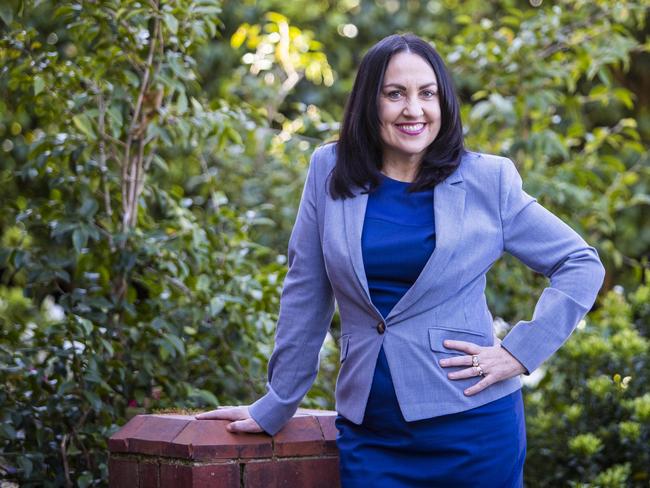AGL Energy tips high power prices: power giant open to further takeover interest
The new boss of AGL Energy’s green retailer warns wholesale power prices, which can flow through to households, will stay high for years. Here is why.

The new boss of AGL Energy’s green retailer warns wholesale power prices will stay high for years as the power grid rolls through a bumpy transition, and says the company would be “flattered” if takeover interest from players including Mike Cannon-Brookes resurfaces after a demerger of the company.
Wholesale electricity prices have surged in the two months since AGL rejected an $8bn buyout bid from a consortium led by the tech billionaire, and the country’s largest power generator expects several years of higher prices amid higher coal and gas supplies and a rocky path to a renewables-led market.
“If you look at where wholesale curves are at the moment, and you look at 2024, it’s actually showing increases in wholesale prices, not decreases,” AGL Australia’s chief executive-elect, Christine Corbett, told The Weekend Australian.
“It’s probably going to be a very different environment to the one we were in only six or 12 months ago. For the foreseeable future, if you look the next couple of years out at wholesale curves – they are trending upwards.”

The prediction of elevated wholesale prices, which may feed through to higher household bills, threatens to turn energy costs into an election issue and adds to broader inflationary pressures weighing on the economy.
Several years of rock-bottom power prices piled pressure on the big utilities, and along with surging renewable energy supplies and soft demand, provided a reason for splitting the company into two separately listed businesses.
The power giant plans to split off AGL Australia, with its 4.5 million customer base, into a newly listed retail-focused company, with the current AGL to be rebadged as a coal-dominated generator called Accel Energy.
Rebounding wholesale prices had the potential to fatten AGL’s profits, but a recent breakdown at its Victorian Loy Yang A coal plant may instead see its earnings go backwards. The Loy Yang outage led to Victoria’s electricity futures spiking by more than $20 per megawatt hour, underscoring the tight market, but Ms Corbett rebuffed investor concerns that the breakdown added to risks around the demerger.
“It’s a mechanical failure and I don’t see that it will impact investors’ decision-making on the demerger,” Ms Corbett said.
After AGL rejected the Cannon-Brookes consortium’s two bids of $7.50 and $8.25 a share and said takeover offers needed to be at a 30 to 40 per cent premium to get serious traction in the market, pressure has been building for the company to demonstrate how a split would create more value for shareholders.
Demerger documents are due out by the middle of May, ahead of a shareholder vote before June 30.
Ms Corbett concedes that if the separation occurs it could spark renewed takeover interest from the consortium or trade buyers. “If other people are interested in us, that is flattering,” Ms Corbett said.
However, AGL Australia’s chair-elect Patricia Mackenzie noted the market and AGL’s share price had rallied since the consortium’s first bid two months ago.
“What’s happened in the months since we were first contacted by Brookfield and Mr Cannon-Brookes is the share price for AGL Energy has increased significantly … and wholesale prices have moved substantially. And so the benchmark today should be our current share price.”
AGL shareholders would back the demerger deal, she added.
“We prefer not to speak on behalf of Brookfield and Mr Cannon-Brookes but we will certainly be putting forward to our shareholders the best possible case in favour of the demerger. If other people are commenting on it, that’s for them to determine, but we are confident that the shareholders will support a demerger,” Ms Mackenzie said.
The role of coal in Australia’s national electricity market remains highly contested but crucial for AGL Australia, which will have a supply offtake deal with Accel that runs until at least 2027.
AGL has already started closing its Liddell coal plant in NSW’s Hunter Valley, and the 180-year old power giant has announced plan to close its Bayswater coal plant in NSW’s Hunter Valley up to five years early, by 2030.
The Loy Yang A facility also faces the axe from 2040.
Over $14bn of power transmission projects are required to be built over the next 10 years to keep pace with a rapid influx of renewable energy and storage in different locations to the big coal generators, which have historically provided the bulk of supply.
While Labor has proposed a $20bn Rewiring the Nation fund to ensure the grid is rebuilt to accommodate growing sources of solar and wind, the Morrison government says it will only support transmission projects which make economic sense.
Ms Corbett said she remained cautious about who would ultimately foot the bill.
“I think the question of who pays is actually a complex question. It’s a question that doesn’t have a definitive answer at the moment,” the AGL Australia CEO-elect said. “Whether it’s the taxpayer, whether it’s customers, whether it’s shareholders, someone actually needs to pay for the cost of the transition. And that I think is at the heart of all the complexity in anyone’s policies from a bipartisan perspective.”
AGL Australia, which will provide electricity, gas, internet and mobile services to 30 per cent of Australian households, plans to target full carbon neutrality to chase a higher valuation as a green retailer.
Accel will retain a 15-20 per cent shareholding in AGL Australia. The retail company will hold a 20 per cent stake in the Powering Australian Renewables consortium along with hydro power generation, gas plants and batteries.


To join the conversation, please log in. Don't have an account? Register
Join the conversation, you are commenting as Logout